This Simple Hack Will Save Your Houseplants While You’re on Vacation
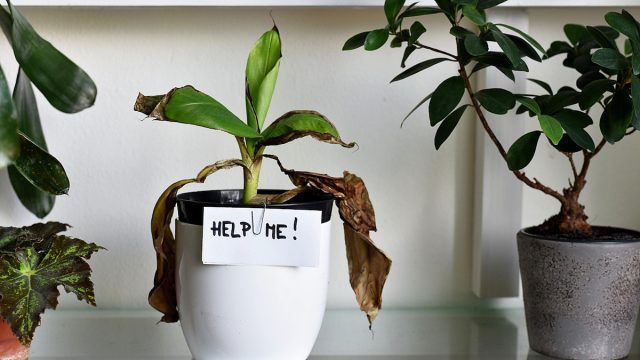
Keeping houseplants happy and healthy is easier said than done. You have to find the ideal lighting, temperature, and potting situation, and make sure you’re watering them at the appropriate interval. And if your plants start to droop or brown, you need to make adjustments to get them back in top shape. All this gets simpler once you find a routine. But as we know, routines are fickle things, and something as small as a three-day vacation can throw your plan all out of whack. Until now, that is. Read on to learn the simple hack that will keep your plants alive when you’re away. Horticulturists and gardening experts swear by this trick, which is way more affordable than hiring a plant sitter.
READ THIS NEXT: 5 Easy Hacks to Save Your House Plants That Gardeners Swear By.
Consider your plants’ specific needs.
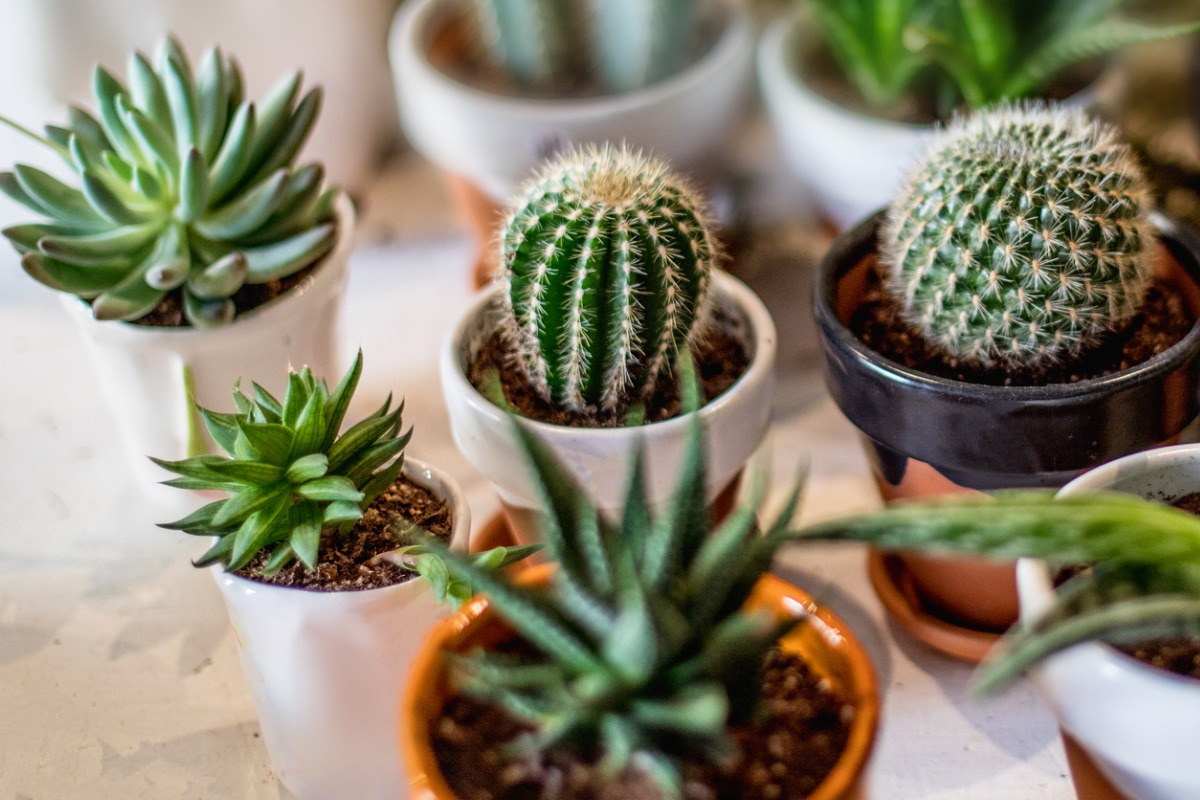
The types of houseplants you own will determine the care they need when you’re away. When establishing a vacation plan, you’ll want to consider your plants’ drought tolerance, sun exposure, size, and the length and time of year of your trip, says Nathan Heinrich, horticulturist and landscape designer at Nathan Heinrich Design. If your plants require regular watering—which is the case for most plants that aren’t orchids, succulents, or cacti—and your trip is under two weeks, then you may want to employ a DIY watering system.
Use a plastic water bottle.
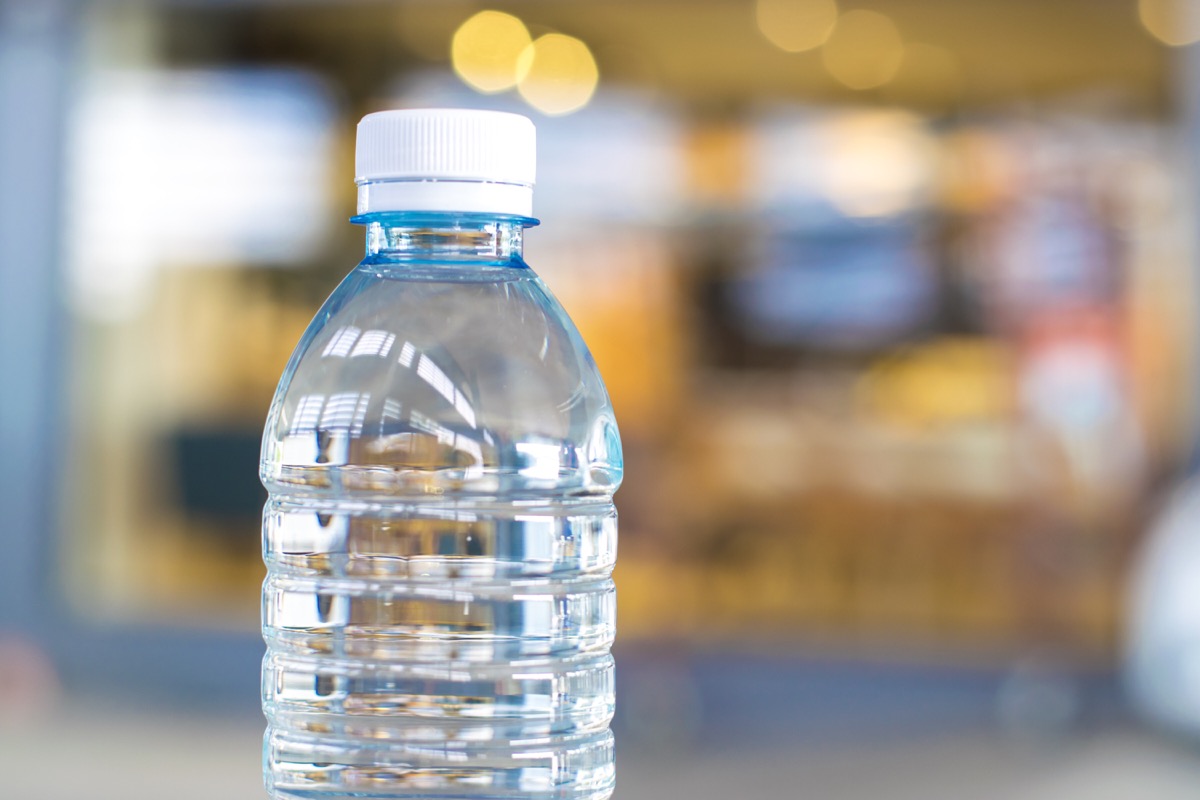
Keeping plants hydrated while you’re on vacation requires little more than a plastic water bottle. To employ this method, “simply fill a closed water bottle with water, drill a small hole in the cap of the bottle, and stick the bottle upside down in the soil—deep enough so the soil completely covers the bottle’s neck,” says Brody Hall, certified horticulturist at The Indoor Nursery. “The water will slowly drip out of the bottle’s cap and into the soil, keeping your plants watered while away.”
It’s important to note that this method—like all methods—has its drawbacks. “While bottles filled with water are a great watering solution for one to two weeks, if you’re planning to be away longer than this time period, I’d suggest finding a workaround,” Hall says. “A bottle can only hold so much water and will eventually run out, risking drying out and possibly killing your plants.”
The method is also susceptible to accidents—such as a pet or gravity knocking over the bottle. Fortunately, there’s a second way to water plants while away if this one isn’t right for you.
READ THIS NEXT: If Your Plants Are Drooping, This Bathroom Product Will Revive Them.
Try this bathtub trick.
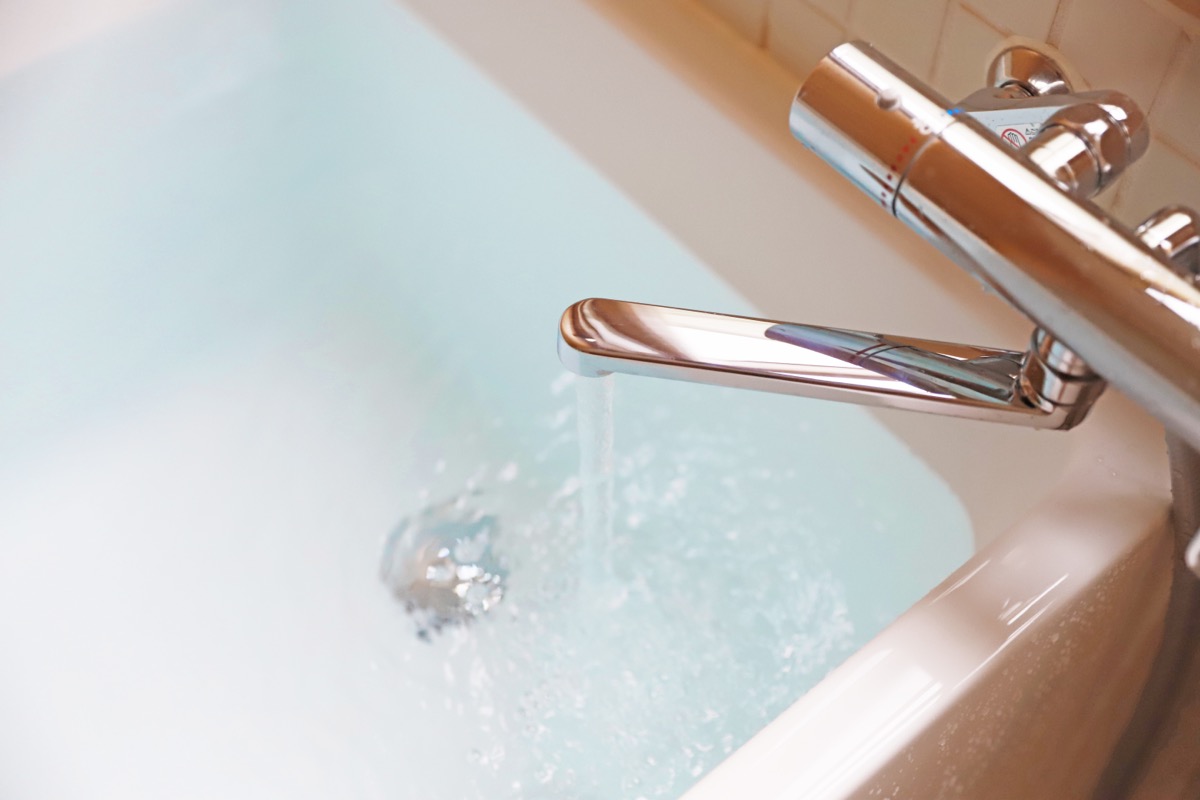
If you have a bathtub, then you have all you need to water your plants while away, assuming they’re planted in pots with drainage holes.
“A tried-and-tested, classic method is to fill your sink or bathtub—depending on how many plants you have—with about one-to-two inches of water and place your potted plants in the water,” says Leslie Vincent, gardening expert and horticulturist at Atkins Garden Shop. “Be sure that the holes in the bottom of your pots are unobstructed so the roots can suck up the water when it needs it; this will keep the plants hydrated for at least a week.” You’ll want to ensure you remove the saucers from the bottoms of your plant pots. Leaving them on will prevent your plants from accessing the water.
For more home advice delivered straight to your inbox, sign up for our daily newsletter.
Hire a plant sitter.
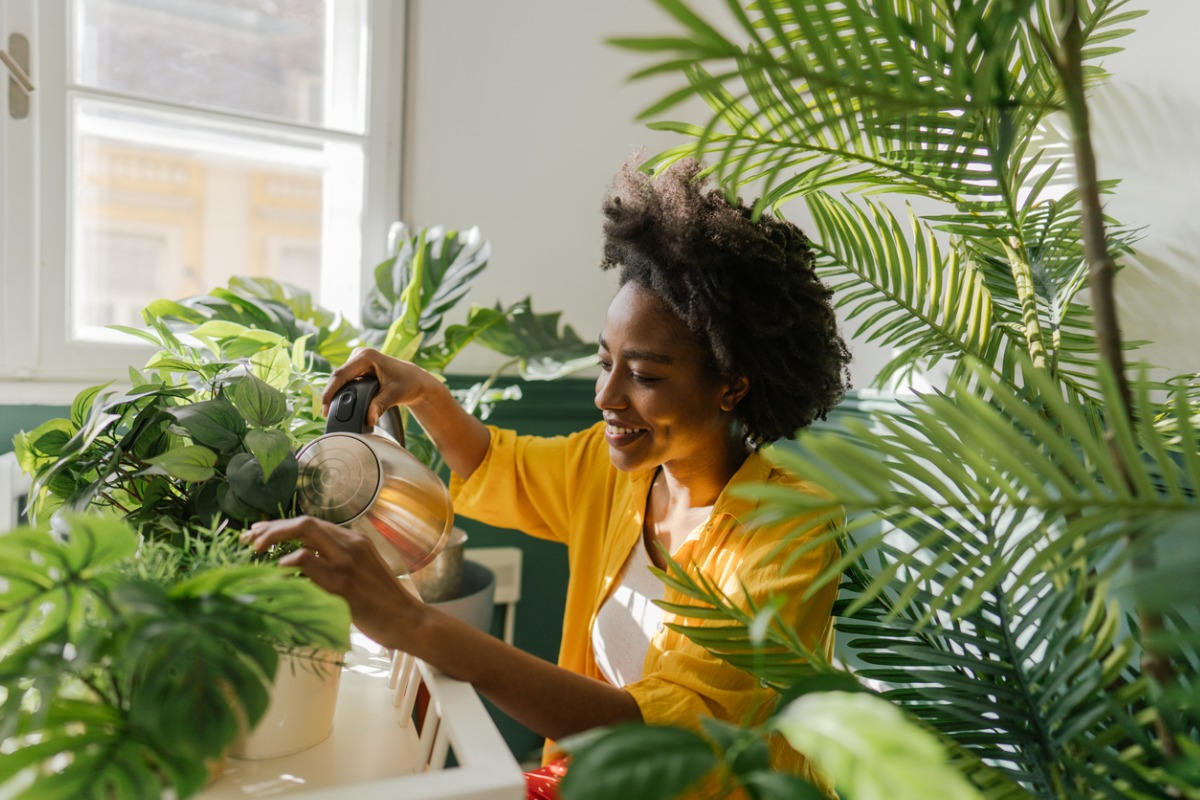
If all else fails, the easiest—and most foolproof—method for keeping plants alive when you’re away from the house is enlisting the help of a plant sitter. “Hire a neighbor, housekeeper, dog walker, or online task service to come and check on the plants while you’re traveling,” says Heinrich, who notes this is his number one recommendation for people who care deeply for their plants or who plan to travel for a long time.
“Write detailed instructions next to each individual plant, especially if they have special needs,” Heinrich says. “You can even request that your plant-sitter send you weekly photos of your plants so that you can see how they’re doing and recommend adjustments to their care.”